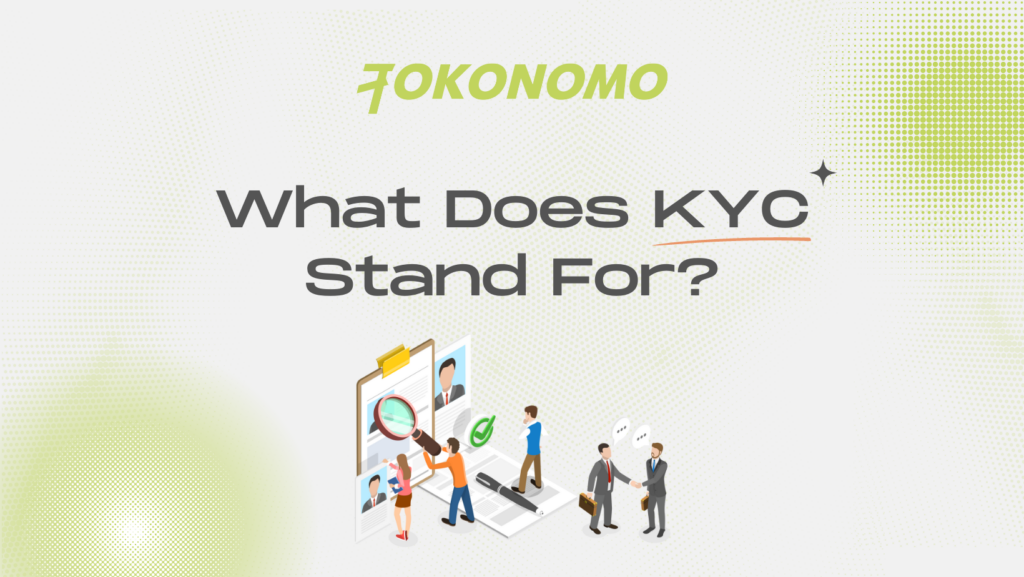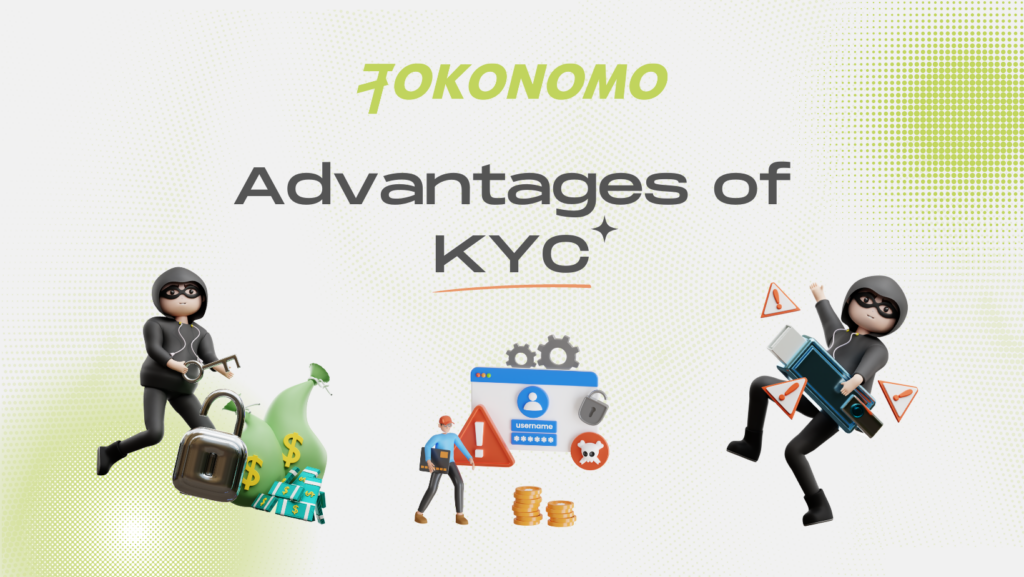KYC (Know Your Customer) is a crucial process used by businesses and financial institutions to verify the identity of their customers. It serves as a means to prevent fraud, money laundering, and terrorist financing. In this blog post, we will delve into the concept of KYC and discuss everything you need to know about it.
What Does KYC Stand For?
If you’ve registered an account with a cryptocurrency exchange, you’ve probably encountered the necessity to undergo a KYC verification process. KYC, which stands for Know Your Customer, obliges financial service providers to gather information that confirms the identities of their customers. This information can include official identification documents or bank statements. Much like Anti-Money Laundering (AML) regulations, KYC policies serve to combat money laundering, terrorism financing, fraud, and the unlawful transfer of funds.


Typically, KYC is a proactive procedure rather than a reactive one. Most financial service providers gather customer details during the onboarding process, prior to permitting financial transactions. In certain instances, accounts can be created without completing KYC, but these accounts often have limited functionality. For example, Binance allows users to open an account but restricts trading until the KYC process is finalized.
When undergoing KYC, you may be required to furnish the following documents:
- Government ID
- Driver’s license
- Passport
In addition to verifying a customer’s identity, it is crucial to confirm their location and address. While identity documents provide basic information such as name and date of birth, further information is necessary to determine aspects like tax residence. It is common to go through multiple stages of KYC, and financial service providers frequently re-verify their customers’ identities at regular intervals.
Which Authority Oversees Compliance With KYC?
KYC regulations vary from one country to another, although there is global collaboration regarding the fundamental information requirements. In the United States, the Bank Secrecy Act and the 2001 Patriot Act laid the foundation for most of the AML and KYC procedures in use today. Meanwhile, the European Union (EU) and countries in the Asia-Pacific region have formulated their own regulations, which often overlap with those in the US. The EU primarily relies on the European Anti-Money Laundering Directive (AMLD) and PSD2 regulations as the cornerstone of its regulatory framework. On a worldwide scale, the Financial Action Task Force (FATF) serves as the coordinating body for multinational cooperation in shaping regulatory standards.
What is The Importance of KYC in The World of Cryptocurrencies?
Because cryptocurrency operates under a pseudonymous framework, it is frequently employed for money laundering and tax evasion. Enhancing cryptocurrency regulations not only enhances its credibility but also ensures that taxes are appropriately paid. There are three primary justifications for the necessity of Know Your Customer (KYC) checks within the cryptocurrency sector:
- Blockchain transactions are irreversible, lacking any administrative recourse in the event of an error, leaving funds susceptible to theft or irrevocable transfers.
- Cryptocurrency transactions are inherently anonymous (pseudonymous), obviating the need for users to divulge personal information when creating a crypto wallet.
- Regulatory uncertainty persists in many countries regarding taxation and the legal status of cryptocurrencies.
While KYC procedures may prolong the account setup process, their advantages are evident. Although not always apparent to the average customer, KYC plays a pivotal role in safeguarding funds and combating criminal activities.
What Advantages Does KYC Offer?
The advantages of KYC extend beyond the obvious, encompassing a range of benefits that go beyond merely countering fraud. KYC serves a broader purpose within the financial system:
- Lenders can gain enhanced insights into their risk exposure by establishing a customer’s identity and examining their financial history. This comprehensive approach contributes to more responsible lending practices and effective risk management.
- It actively tackles identity theft and various forms of financial fraud.
- It proactively mitigates the risk of money laundering, serving as a preventive measure.
- KYC elevates the levels of trust, security, and accountability within financial service providers. This elevated reputation ripples through the entire financial industry, potentially fostering increased investment.


Know Your Customer (KYC) and The Concept of Decentralization
Cryptocurrencies, since their inception, have primarily emphasized decentralization and the elimination of intermediaries as their core principles. As previously noted, individuals can easily create a wallet and possess cryptocurrencies without the necessity of disclosing personal information. Nevertheless, it is precisely due to these characteristics that cryptocurrencies have gained notoriety as a favored vehicle for money laundering.
Governments and regulatory authorities commonly mandate that exchanges conduct Know Your Customer (KYC) verifications on their clients. While enforcing mandatory KYC protocols for cryptocurrency wallets is exceptionally challenging, it is more feasible for services that facilitate the conversion of fiat currency into cryptocurrencies. Some investors approach cryptocurrencies with speculative interests, while others actively embrace their fundamental values and practical applications.
Counterarguments to KYC
While KYC undeniably offers significant advantages, it remains a contentious topic for certain critics. Within the cryptocurrency sphere, objections to KYC are more prevalent due to its historical context and origins. Primarily, its detractors often raise concerns regarding privacy and associated costs:
- KYC processes entail an additional expense, which is frequently transferred to the customer in the form of fees, thereby increasing the financial burden.
- For certain individuals, obtaining the necessary documentation for KYC checks can be challenging, or they may not possess a permanent address, rendering access to specific financial services a formidable obstacle.
- Financial service providers with lax data security measures can jeopardize the integrity of your private information, as cyberattacks may result in data breaches and theft.
- There is an argument suggesting that KYC contradicts the principles of cryptocurrency decentralization, further fueling the debate.
Conclusion
KYC procedures have become a widely adopted practice within the financial services sector and cryptocurrency exchanges. They serve as a crucial component in the ongoing battle against money laundering and various illicit activities. Although KYC verifications might occasionally be perceived as bothersome, they play a pivotal role in enhancing the overall security landscape. As an integral facet of broader Anti-Money Laundering (AML) initiatives, KYC grants you increased assurance and peace of mind when engaging in cryptocurrency trading on platforms.











